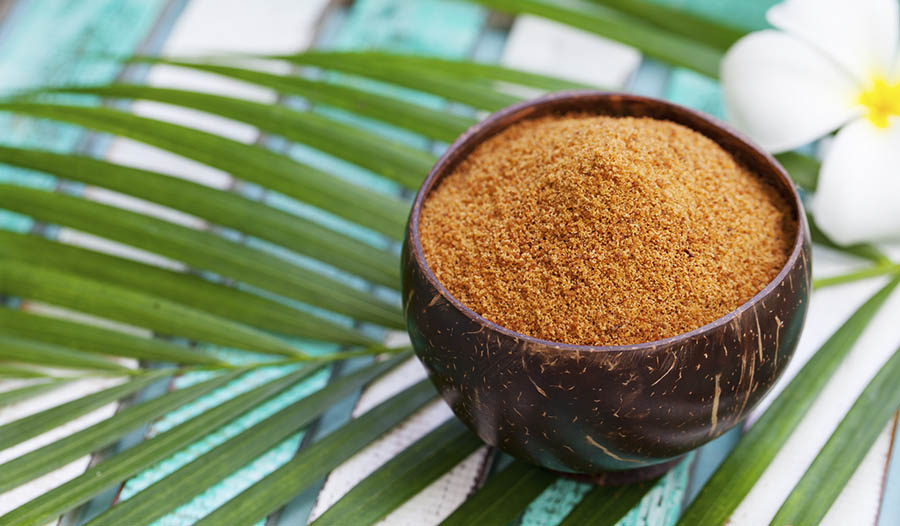I pro e i contro dello zucchero e dei dolcificanti alternativi

Da Alysa Bajenaru, RD
Sappiamo tutti che troppo zucchero fa male, ma quanto è troppo? E che dire dei dolcificanti alternativi ? ?
Queste sono le attuali raccomandazioni per gli zuccheri aggiunti giornalieri:
- Bambini 2-19: 6 cucchiaini (100 calorie)
- Donne adulte: 6 cucchiaini (100 calorie)
- Uomini adulti: 9 cucchiaini (150 calorie)
La maggior parte degli americani supera questi limiti, mettendosi a rischio di malattie cardiache e obesità. Le principali fonti di zuccheri aggiunti nella dieta includono bevande zuccherate, dessert a base di cereali, bevande alla frutta, dessert a base di latte e caramelle. Un importante studio del 2014 pubblicato sul Journal of the American Medical Association ha rilevato che il rischio di morte per malattie cardiache aumenta con il consumo regolare di zucchero e bevande zuccherate, indipendentemente dal peso.
Sappiamo quindi che dobbiamo ridurre il consumo di zucchero, ma che dire dei dolcificanti naturali e alternativi ? Scorriamo l'elenco e parliamo dei pro e dei contro di ciascuno.
Zucchero
Pro: Lo zucchero è una rapida fonte di energia, ideale per la cottura.
Contro: Molto elaborato, con pochi o nessun nutriente. In pratica "calorie vuote" che possono causare un picco di zuccheri nel sangue e un "crollo" subito dopo.
Zucchero di cocco
Pro : meno lavorato dello zucchero da tavola, lo zucchero di cocco è ottenuto dalla bollitura del nettare dei fiori della pianta di cocco. Contiene tracce di minerali e altri nutrienti.
Contro: Il contenuto di minerali e nutrienti è minimo e ha lo stesso numero di calorie dello zucchero da tavola.
Eritritolo
Pro: L'eritritolo è un alcol di zucchero che ha solo il 6% delle calorie dello zucchero ma contiene il 70% della dolcezza. Non provoca variazioni dei livelli di zucchero o di insulina nel sangue e può essere combinato con lo xilitolo per la cottura.
Contro: Gli alcoli dello zucchero non vengono digeriti dall'organismo e possono causare gonfiore e disturbi digestivi quando fermentano nel colon. Tuttavia, l'eritritolo viene per lo più assorbito nel flusso sanguigno prima di raggiungere il colon, il che lo rende più facile da digerire rispetto ad altri alcoli dello zucchero. Tuttavia, si consiglia di introdurre l'eritritolo in piccole quantità per vedere come lo si tollera.
Stevia
Pro: La Stevia è estratta dalle foglie della pianta di Stevia, è 200-350 volte più dolce dello zucchero da tavola e ha zero calorie.
Contro : Poiché ha un retrogusto amaro, la Stevia viene spesso combinata con altri dolcificanti come l'eritritolo , l'aspartame o lo zucchero da tavola. , aspartame o zucchero da tavola.
Frutto di Monaco
Pro : noto anche come Lua Han Guo, il frutto del monaco viene estratto dal frutto del cigno ed è circa 100-250 volte più dolce dello zucchero da tavola, con zero calorie. La dolcezza del frutto del monaco deriva da antiossidanti unici chiamati mogrosidi. Questi antiossidanti sono studiati per i loro effetti antinfiammatori e per le possibili proprietà antitumorali e antidiabetiche. (Sono necessarie ulteriori ricerche, ma è bello sapere che questo dolcificante alternativo può avere effetti benefici sulla salute).
Contro: Ad alcune persone non piace il sapore.
Miele
Pro: Il miele ha proprietà antimicrobiche e antibatteriche ed è ottimo per lenire il mal di gola. Esistono oltre 300 varietà di miele, a seconda del luogo in cui le api raccolgono il nettare. Il miele è meno lavorato dello zucchero da tavola e contiene tracce di vitamine e minerali.
Contro: Il miele ha più calorie dello zucchero, anche se è più dolce, quindi si può finire per usarne meno. Il miele non deve mai essere somministrato ai bambini di età inferiore a un anno perché può contenere batteri che causano il botulismo infantile.
Agave
Pro: Un popolare sostituto vegano del miele, il nettare d'agave è prodotto dalla pianta dell'agave e contiene tracce di ferro, calcio, potassio e magnesio. L'agave è una volta e mezza più dolce dello zucchero e si scioglie più facilmente nei liquidi rispetto al miele.
Contro: Il nettare d'agave contiene una volta e mezza più calorie dello zucchero da tavola e, sebbene abbia un indice glicemico più basso, comporta comunque un picco di zuccheri nel sangue.
Linea di fondo
Ridurre gli zuccheri aggiunti è un'azione di cui tutti potremmo beneficiare. La buona notizia è che esistono alcune valide alternative naturali da provare. E quando tutto il resto fallisce, mangiate un frutto!
ESONERO DI RESPONSABILITÀ:Questo Centro Benessere non intende fornire diagnosi...

















































































